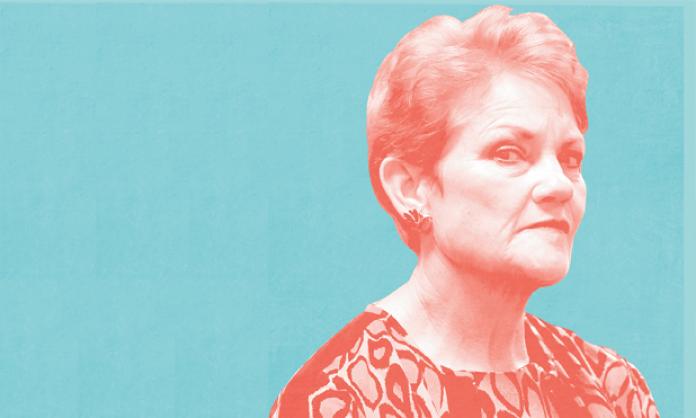In the lead-up to the federal election, Red Flag is running a series of pieces analysing the four major political parties – Labor, Liberal, National and Greens – and One Nation. This article by Ben Reid looks at One Nation.
———-
The re-emergence of Pauline Hanson’s One Nation as an electoral force in 2016 was a local expression of an international trend of so-called right populism. It reflects the periodic trend in modern capitalism for racial and militaristic politics to become more pronounced than usual.
However, like other examples of right populism, One Nation’s policies also draw on economic nationalism. The party supports multinational corporations paying their “fair share” of tax, “freezing politicians’ wages” and opposing “foreign ownership of Australian land and assets”.
On the face of it, these are not likely to be popular policies with big business and most sections of the ruling class, which have been implementing policies aimed at boosting profits through the neoliberal restructuring of the Australian economy.
Despite some appearances, however, One Nation offers no solutions for working people. It is a type of political party of the far right that emerges in times of crisis or turbulence. Although the base of these organisations comes from outside the ruling class and big business, they don’t fundamentally threaten capitalism. When close to or having achieved power, they work in cooperation with the big corporations. Even when acting as a pole of “protest politics”, One Nation supported most of the federal government’s anti-union and austerity measures.
**********
While the forms political parties take in capitalist societies can vary considerably, there are usually four common facets: a leadership, policy and ideology, an electoral base and a way of governing. Marxists have long recognised, however, that political parties ultimately rule on behalf of social classes and factions of these classes.
In the older and more stable capitalist countries, the class character of most mainstream parties of the “centre right” is often quite explicit. Employer and industry associations and people from these ranks in society dominate their leadership and policies. They adopt the posture of being “natural” parties of government. The Liberal-National Coalition performs this role in Australia.
But these parties face a problem: most members of the population are wage workers or small proprietors with interests that diverge from those of the wealthy elites. While the leadership and actions of such parties in power are thoroughly dominated by tiny wealthy elites, their policies must have wider appeal. As Russian revolutionary leader Leon Trotsky remarked:
“The economically powerful big bourgeoisie represents an infinitesimal minority of the nation. To enforce its domination, it must ensure a definite mutual relationship with the petty bourgeoisie and, through its mediation, with the working class.”
Read the article by Ben Reid on Red Flag.

